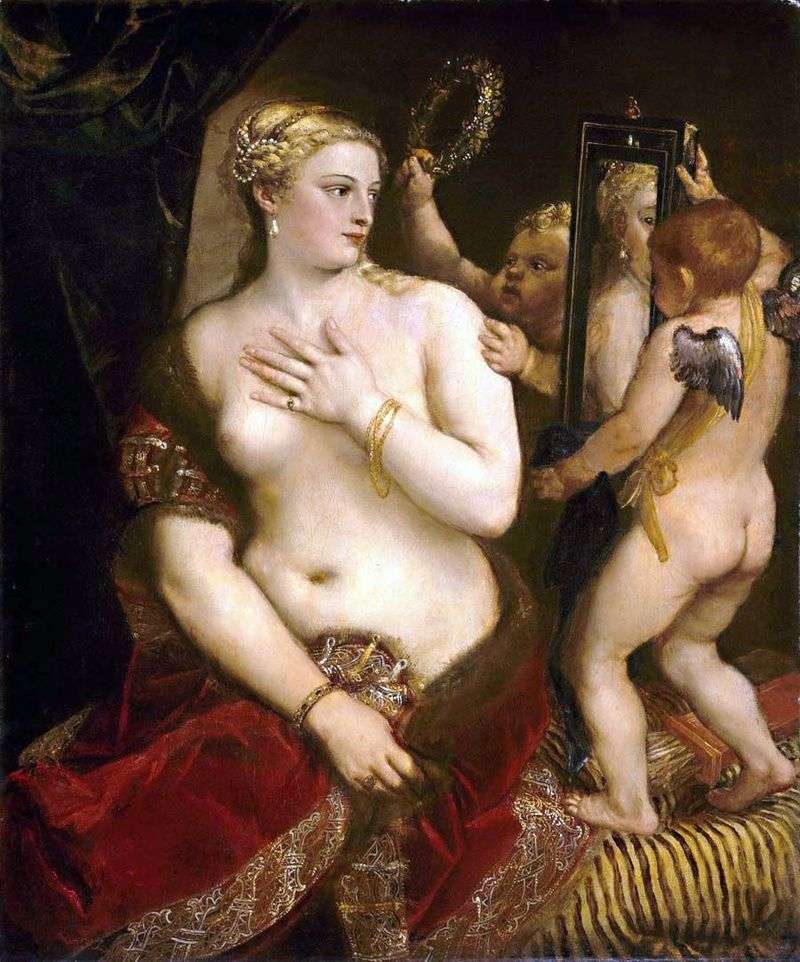
Painting by artist Tiziano Vecellio “Venus with a Mirror”. The size of the picture is 124 x 105 cm, canvas, oil. Venus, in Roman mythology, the goddess of gardens, beauty and love. In ancient Roman literature, the name of Venus was often used as a synonym for fruits. Some scientists name the goddess translated as “the mercy of the gods.”
After the widespread tradition of Aeneas, Venus, revered in some cities of Italy as Frutis, was identified with the mother of Aeneas Aphrodite. Now she became not only the goddess of beauty and love, but also the patroness of the descendants of Aeneas and all the Romans. The expansion of the cult of Venus in Rome was greatly influenced by the Sicilian temple built in her honor.
Apotheosis of popularity cult of Venus reached in the I century BC. E., when her patronage began to count the famous senator Sulla, who believed that the goddess brings him happiness, and Guy Pompey, who built the temple and dedicated it to Venus the victor. Guy Julius Caesar particularly revered this goddess, considering her son, Aeneas, the ancestor of the genus Julius. Venus was rewarded with such epithets as gracious, cleansing, cropped, in memory of the brave Romans who, during the war with the Gauls, cut their hair to weave ropes out of them. In literary works, Venus appeared as the goddess of love and passion.
In honor of Venus, one of the planets of the solar system was named. “Venus with a mirror” – one of the best works of the Italian artist: Tiziano Vecellio creates a gallery of beautiful paintings, glorifying the sensuality and charm of female beauty. It is shrouded in flickering warm tones with restrained hot flashes of red, golden, cold blue – rather a poetic dream, a charming and exhilarating tale-song about beauty and happiness. Titian’s Venus, as the embodiment of femininity, fertility, motherhood, is beautiful with the mature beauty of an earthly woman.
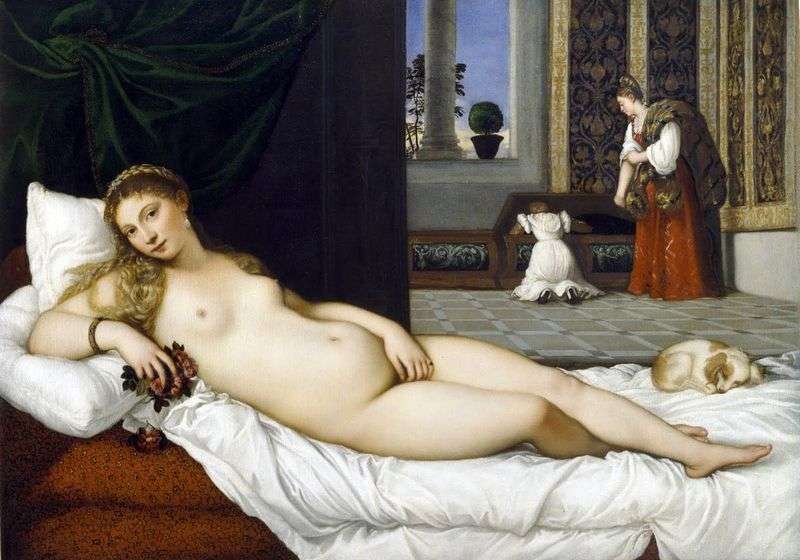 Venus Urbinskaya by Titian Vecellio
Venus Urbinskaya by Titian Vecellio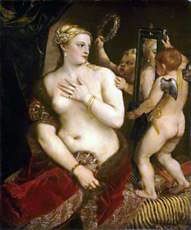 Vénus au miroir – Titian Vecellio
Vénus au miroir – Titian Vecellio Venus and the Volcano with weapons for Aeneas by Francois Boucher
Venus and the Volcano with weapons for Aeneas by Francois Boucher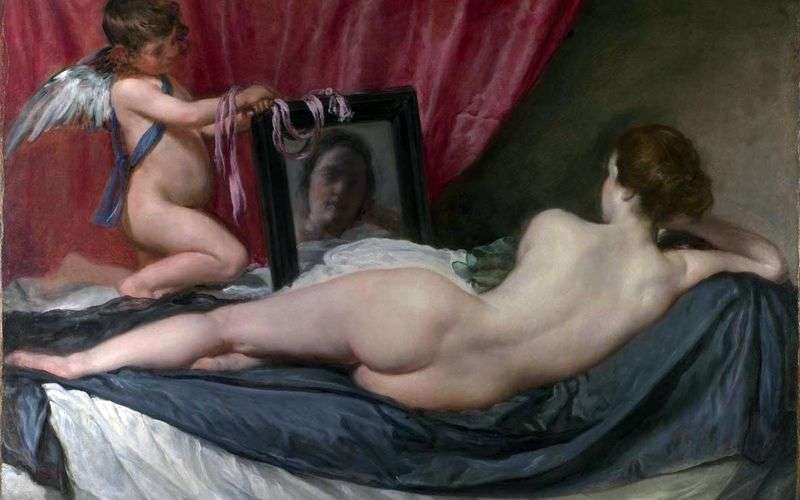 Venus in front of the mirror by Diego Velazquez
Venus in front of the mirror by Diego Velazquez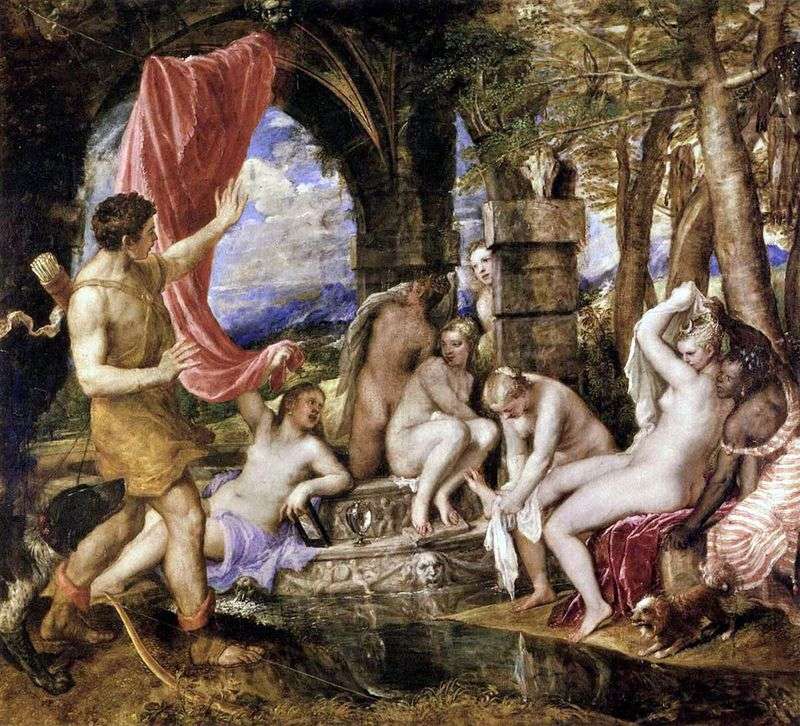 Diane and Actaeon by Titian Vecellio
Diane and Actaeon by Titian Vecellio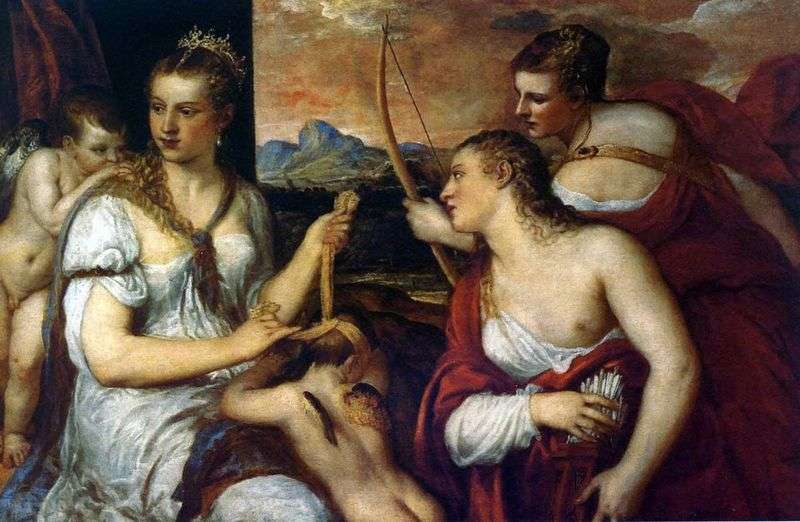 Venus, tied Amur’s eyes by Titian Vecellio
Venus, tied Amur’s eyes by Titian Vecellio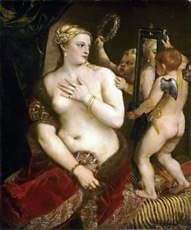 Venus con un espejo – Titian Vecellio
Venus con un espejo – Titian Vecellio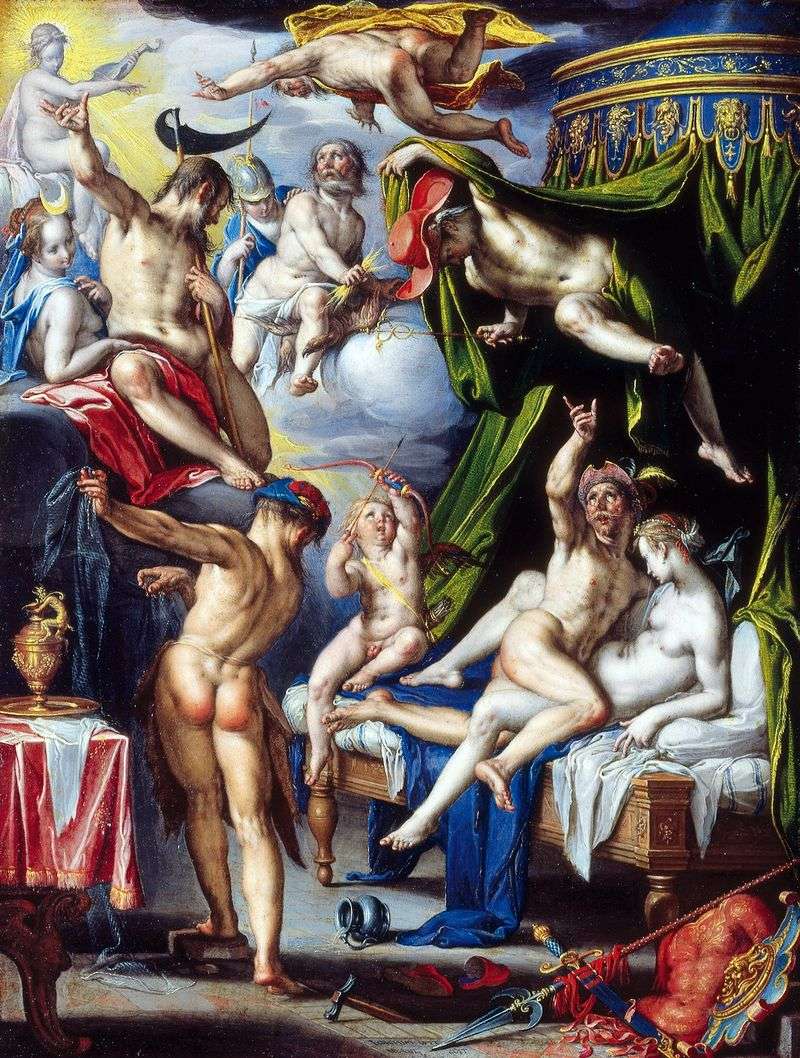 Mars, Venus and Volcano by Joachim Eteval
Mars, Venus and Volcano by Joachim Eteval